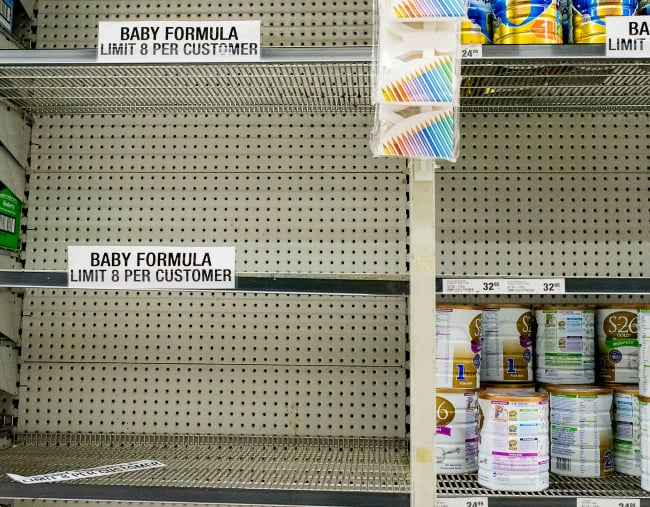Hannah Goldand had almost completely run out of formula for her six-month-old son Archer on Thursday.
The little boy has a serious milk allergy, and his mum has a prescription to purchase the only three branded tins of infant formula that do not trigger a reaction, at a discounted rate, The Age reports.
But the mum told The Age that for months she had struggled to get more than one tin at a time.
And she’s not alone. Australia is facing an infant formula shortage as supplies are bought out by shoppers who sell the formula to parents in China. Parents, who after a deadly contamination incident in 2008, do not trust the formula produced in their own country.
This shortage, which for several years has been managed with limits on tins purchased, has recently hit the prescription formula market particularly hard.


Top Comments
I have a great relationship with our local independent pharmacist, I spoke with them about my anxiety at the baby formula supply situation (our local supermarket is regularly stripped), and they offered to order in my formula as I needed, I just had to give them a call for a few days notice. Perhaps the Mum in this situation could speak to her local pharmacist, even if it might be a few dollars more a can (because they’re not a discount chain) it might be worth it for piece of mind?
If you breastfed it wouldn’t be an issue.
Or if you have use formula surely you’d stock up? How disorganised can you be?
Not everybody CAN breastfeed. Not everybody wants to. Not anyone’s place to judge. And you know, some people are disorganised, because they are human beings and therefore imperfect. Especially if they’re new to the whole baby thing, it can take a while to get adjusted.
I can’t breastfeed. My baby was sick and in and out of hospital for weeks. My milk supply didn’t come in due to health conditions although I tried. I tried to stock up on soy formula as we found out he was allergic to cows milk proteins but only one place our side of town sells it and they don’t have a large stock. Your statement is cruel and uneducated.
Wow, judgemental, much? Breast feeding isn't mandatory, and formula is a perfectly acceptable alternative - it's a woman's right to choose what she does with her own body. Fed is best, period.
Ok... I had every intention of breastfeeding my first baby, but didn’t find out until after he was born that my breasts are underdeveloped and incapable of producing enough milk to nourish an infant. I had no formula with me, because I’d had no previous idea that I would need it.
A lot of women who cannot breastfeed are unaware of this until they actually try it. For many of us, our inability to breastfeed came as a devastating blow, and unhelpful, judgemental comments like yours simply drive the knife deeper.